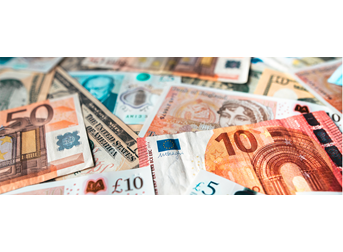Daily Brief

Share Story
Global inspiration deficit
3 minute readAnother roll of the die
It is hard to resist the suspicion that investors are currently modelling their trading decisions on the roll of a die. After two days supposedly sweating over the re-emergence of Covid 19, and hiding behind the yen, they abandoned the safe-haven on Tuesday and piled into the commodity dollars.
The only commonalities over the last week have been the market’s dislike of the Norwegian krone, its lack of enthusiasm for the British pound and its steady appetite for the US dollar. There was no specific case for relegating the krone to the back of the field yesterday: Norwegian ecostats were absent and oil prices went nowhere. Nevertheless, WTI crude is 12% off its early July highs and the forthcoming increase in OPEC production makes an early recovery unlikely. It is harder to understand why investors who, 24 hours earlier, were so very concerned about an upsurge in Covid infections, could so easily and quickly become blasé about it.
There has at least been a little more separation between the currency leaders and laggards in the last couple of days. A 1% gap appeared between the first-placed Canadian dollar and the krone at the rear. Sterling lost an average of 0.2%. It gave up half a US cent and a third of a euro cent, and was unchanged against the yen.
Bricks without straw
It could be that investors felt the need to invent pretexts for trading because the usual decision support structure was missing for a second day. There were no economic data to provide guidance or inspiration.
German producer prices increased by 1.3% in July and were 8.5% higher on the year. The Federal Statistical Office said it was “the highest increase compared to the corresponding month of the preceding year since January 1982 (+8.9%), when prices rose strongly during the second oil crisis”. Switzerland’s trade surplus widened in June to CHF5.53 billion, its second-highest ever level, as imports and exports both went up. The franc was just about unchanged against sterling. In the United States, housing starts and building permits diverged in June, with more starts but fewer permits.
The European Central Bank’s bank lending survey found greater demand for borrowings among businesses and households. Increased fixed investment and improved consumer confidence were cited as factors.
Still no straw
It will be another inspiration-free day for investors. There is next to nothing on the agenda for the London session.
Japan reported overnight that June’s balance of trade fell into a small deficit after imports increased by more than exports. Australian retail sales fell 1.8% in June, more than three times the predicted decline. New Zealand credit card retail sales in June were 6.3% higher on the year. The increase was little more than forecast and only briefly positive for the Kiwi.
Ahead of London’s opening, the ONS reported that UK public sector borrowing in June was just over £22 billion, higher on the month but less than expected. Sterling enjoyed a short-lived lift. Later this morning investors can marvel at South African consumer confidence and Italian industrial sales. After lunch all that remains is the Canadian new housing price index, last seen rising at an annual pace of 11.3%.
Weekly roundup



